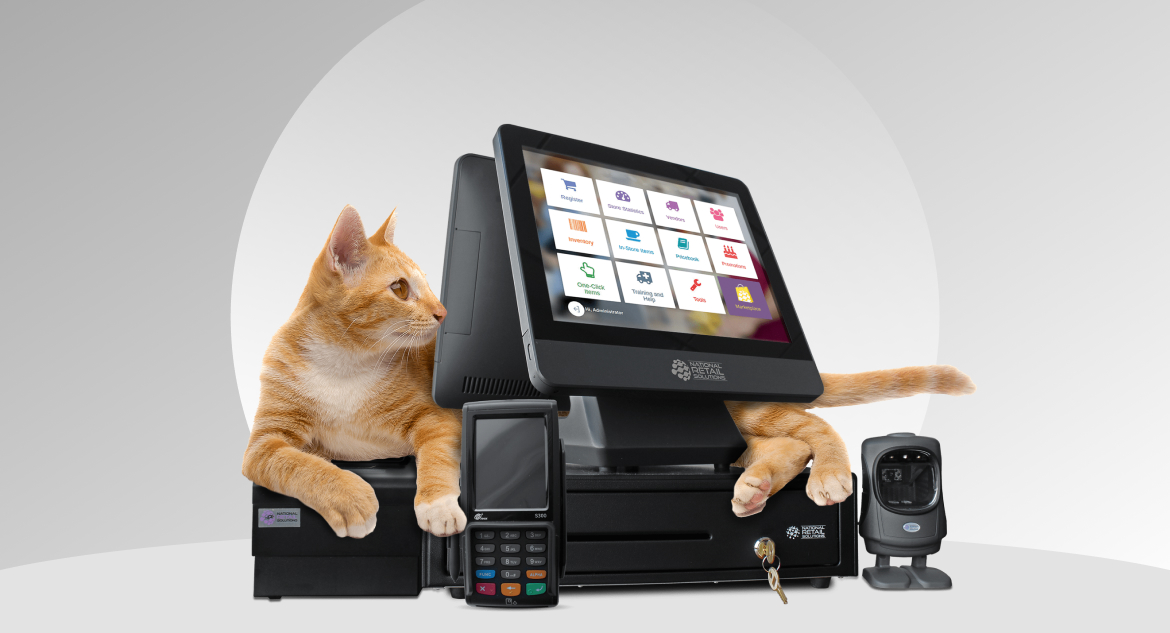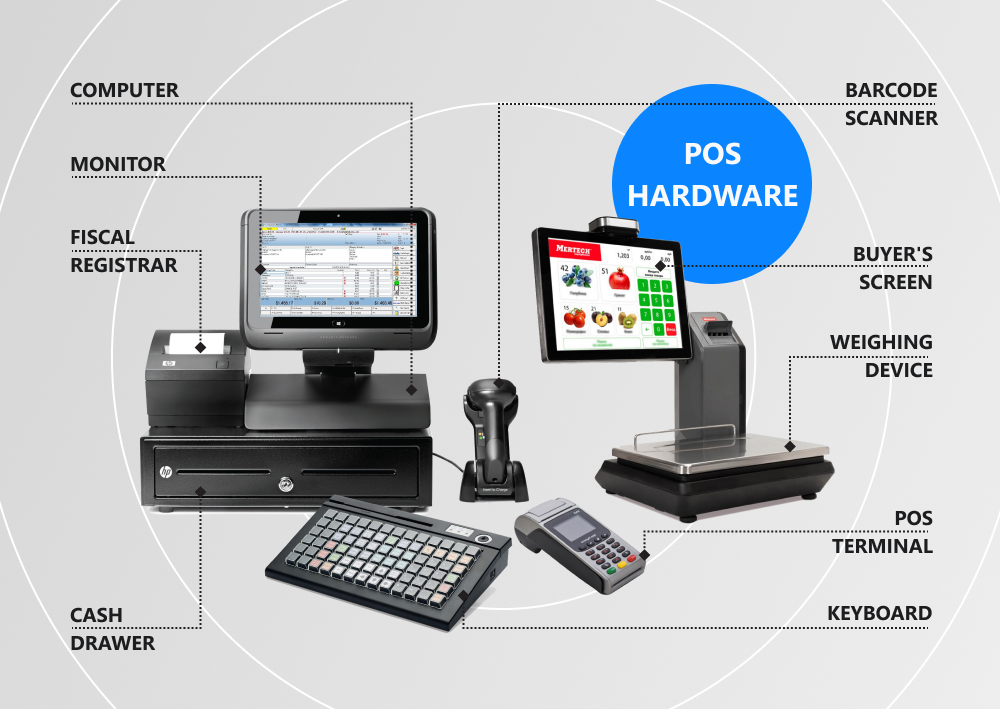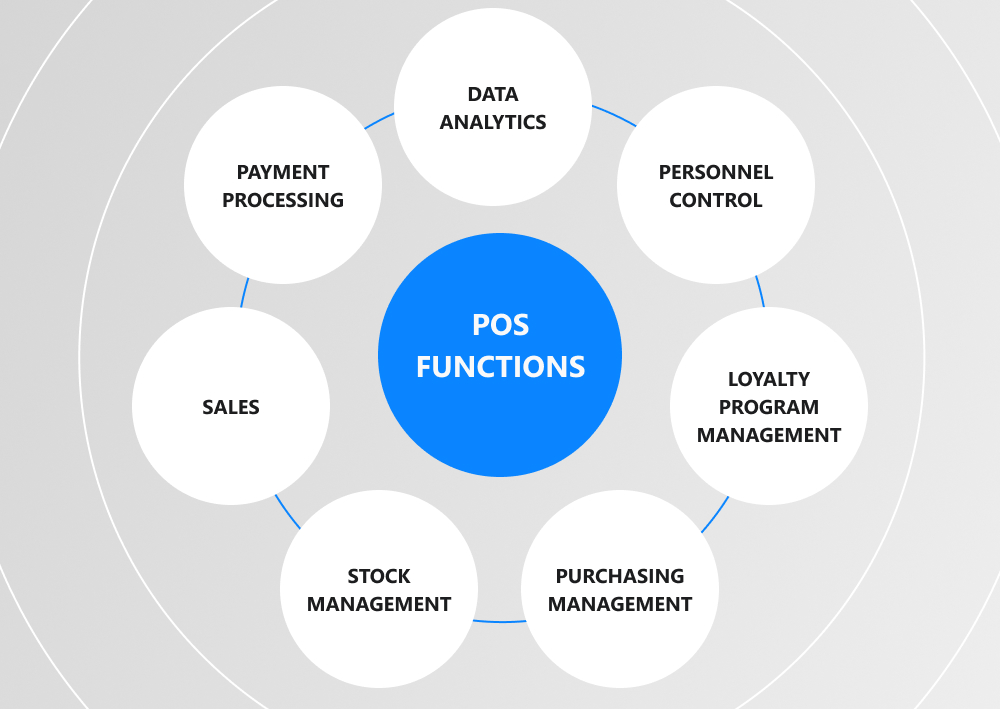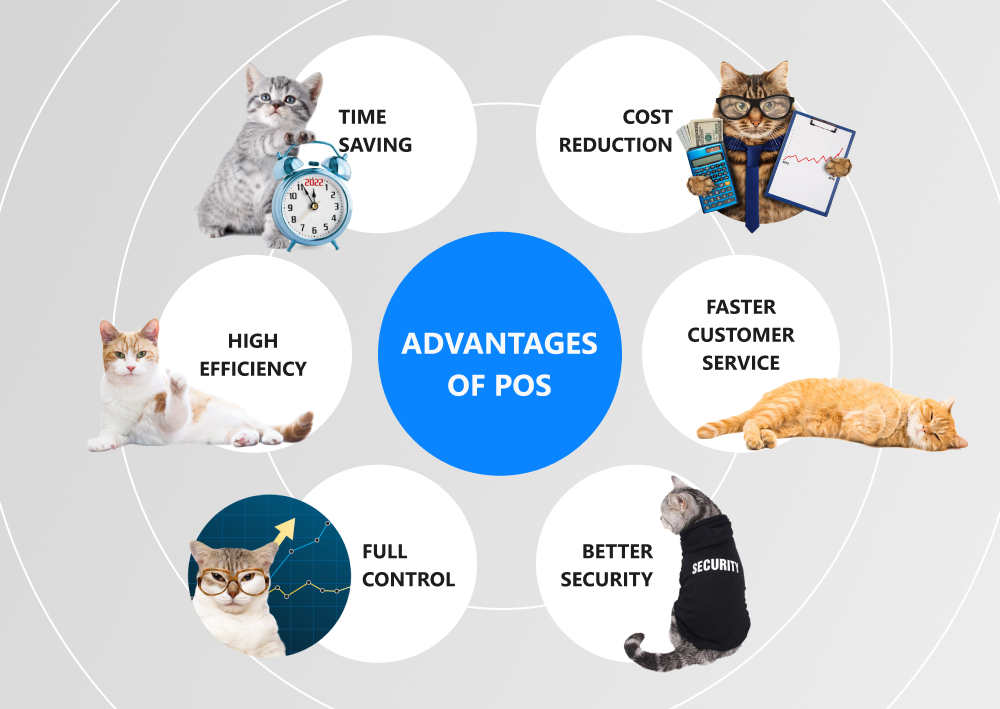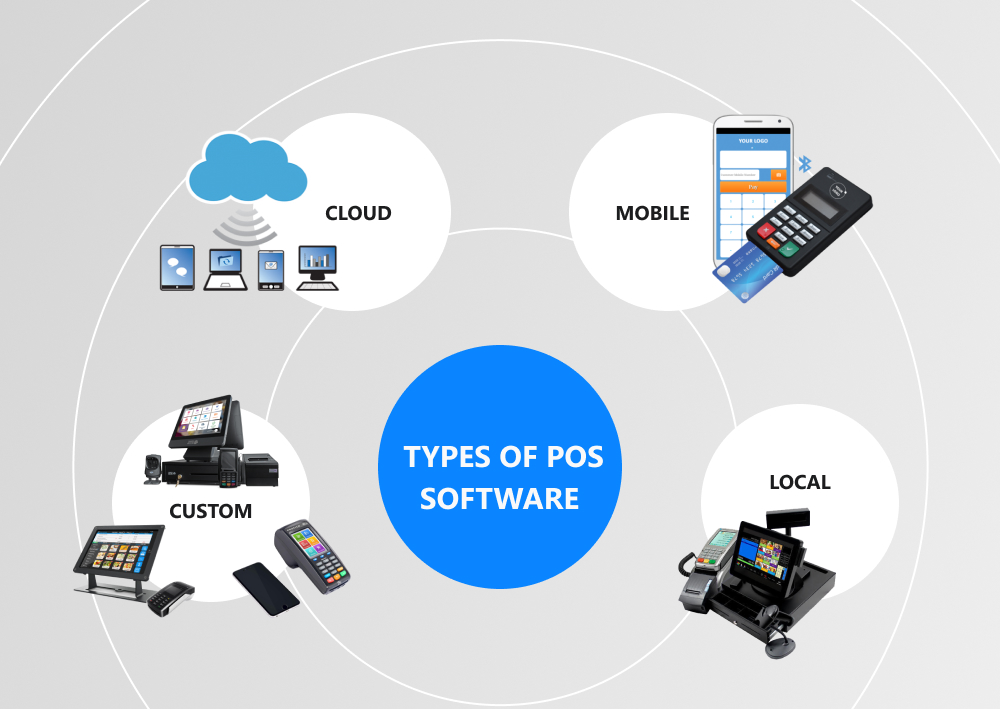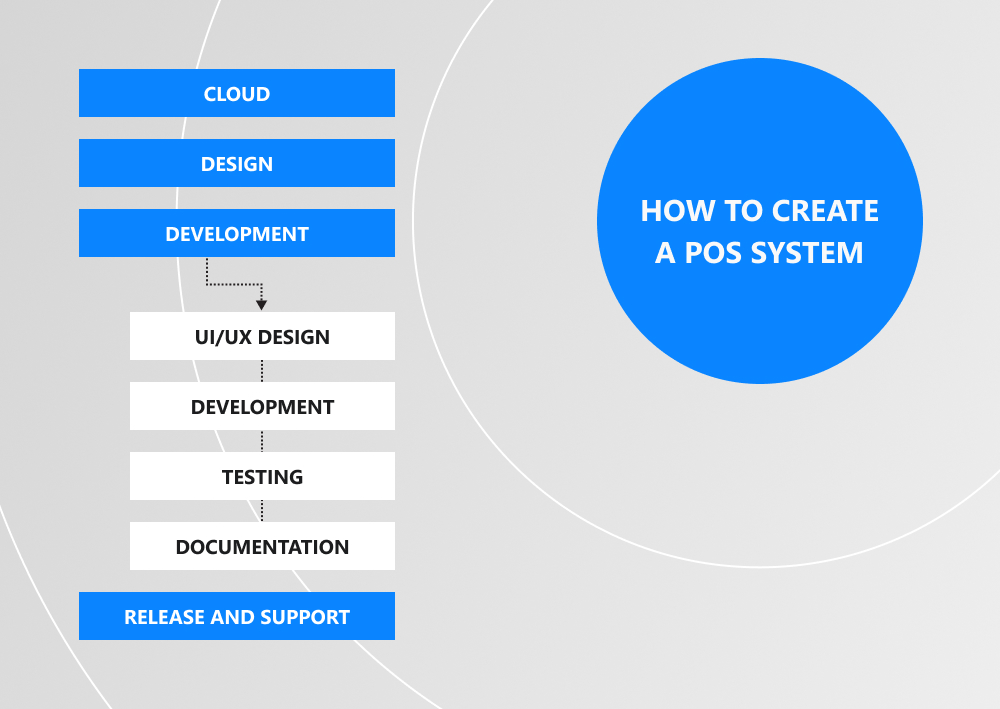Today, many companies are thinking about how to build POS system, a multifunctional platform that is widely used by retailers, hotels, restaurants, pubs, and other big and small businesses that render various services. Modern POS solutions can process payments and manage a range of day-to-day operations, such as data analytics, accounting, marketing, personnel control, and much more.
The global POS software market value reached $9.26 billion in 2021 and is expected to grow to $19.56 billion by 2028. These figures clearly show that point of sale systems are gaining popularity globally. If you haven't had a POS solution yet, it's time to create your own POS system. Read our new article to learn what benefits it provides and how the POS software development process goes.
written by:
Sergey Pupkevich
Head of Java Tech Cluster
Today, many companies are thinking about how to build POS system, a multifunctional platform that is widely used by retailers, hotels, restaurants, pubs, and other big and small businesses that render various services. Modern POS solutions can process payments and manage a range of day-to-day operations, such as data analytics, accounting, marketing, personnel control, and much more. The global POS software market value reached $9.26 billion in 2021 and is expected to grow to $19.56 billion by 2028. These figures clearly show that point of sale systems are gaining popularity globally. If you haven't had a POS solution yet, it's time to create your own POS system. Read our new article to learn what benefits it provides and how the POS software development process goes.
Contents
What Is a Modern POS System?
POS is an abbreviated form of Point-of-Sale. It's a software and hardware system that allows you to automate and significantly improve your trading activities. A POS system works with the help of a fiscal registrar and consists of several parts that are used to record and sell goods, make cash and non-cash payments, generate fiscal documents, and much more. POS solutions are most often applied in stores, restaurants, hotels, and other places that serve customers.
A Point-of-Sale system usually includes the following basic POS hardware components:
- POS monitor that displays text and graphical information to personnel (e.g. cashier in a store or administrator in a hotel);
- A computer with an installed operating system (Windows, macOS, Linux, etc.), as well as other POS software required for operation. There are two kinds of central processing units: a monoblock (computing equipment and a monitor in one device) and a stand-alone module.
- Fiscal registrar is a device that is responsible for a complete and accurate accounting of products, goods, and services. It's also used to print checks and reporting documents;
- Keyboard, which is required to execute various commands.
Also, the POS system may consist of the following additional devices:
- Barcode scanner is a device that helps users enter data about a specific product into the program by recognizing product labels. Barcode scanners can be fixed, wired, or wireless.
- Buyer's screen is a small display that shows from one to four lines of text (for example, the name of the product, its weight, quantity and cost, information about promotional offers, and so on if we're speaking about a physical store);
- Cash drawer is a box that is used to store banknotes and coins. It's usually equipped with an automatic locking mechanism that opens at the time of purchase.
- POS terminal that is used for payments with a bank card or other means of contactless payment (using a smartphone, smartwatch, smart bracelet, etc.);
- Weighing device that is usually used in large supermarkets and hypermarkets. It's mounted in the workplace and integrated with the POS system.
Your own Point-of-Sale system can have other devices depending on your needs and requirements. For example, they can include a POS terminal, receipt printer, cash register, barcode printer, and others.
What Functions Should Your POS Solution Have?
The main purpose of any POS system is to automate and simplify workflow, such as the movement of goods from receipt to sale to the customer or customer service. Using POS software solutions will help you to control all processes and see the results of your activities, as well as save time, money, effort, and eliminate human errors.
So, modern POS systems perform the following functions:
Acceptance of Payments
The main task of every POS system is to monitor cash flow, accept cash and non-cash payments from customers, as well as print checks.
Adding and Viewing Items in the Shopping Cart
Your staff can add and view items in the shopping cart to be able to prepare a bill.
Stock Management
If you're engaged in retail business, ask the POS software developers to include this function. This will allow you to track what products or services are in demand, what should be ordered and what goods should be rejected.
Purchasing Management
A good POS system should be able to automatically calculate the volume of purchases and send orders to suppliers.
Loyalty Program Management
The POS software solutions can collect data about customer preferences, which you can use to develop personalized offers, discounts, and loyalty programs to improve customer experience and, consequently, increase sales.
Personnel Control
Thanks to the POS system, you can track the sales of each employer in order to effectively motivate them and define fair wages. Controlling the actions of your staff also helps you reduce shortages and mitigate the risk of fraud.
Data Analytics
POS systems are able to analyze data on sales, commodity flow, buyers, and suppliers. This information will help you make smarter business decisions, sell more products and services, as well as increase customer loyalty.
What Benefits Do POS Systems Have?
Switching to POS software might be a big shift, and it's understandable if you have doubts. To give you more information to rely on in the decision-making process (and some encouragement to give the POS system development a try, too), we're inviting you to take a look at the advantages that it offers.
Time Saving
A POS solution is used not only as a payment processor. It is able to perform a huge number of functions, such as planning and payroll, inventory management, accounting, and much more. Integrating Point-of-Sale systems with other applications automates your daily activities and significantly reduces the time required to complete various tasks.
Cost Reduction
Automation of workflows not only saves time for your employees, but also reduces overall operating costs.
Faster Customer Service
People hate standing in lines. According to the study, 25% of customers would leave the store due to the long lines. POS systems allow us to carry out payment transactions quickly, which improves the quality of customer service and enhances customer engagement.
Full Control
POS systems allow business owners to keep track of all processes while they are busy with other tasks.
Better Security
Fraud and cyber crimes are real threats. Thus, security of customer data is one of the main concerns for any platform, and POS systems are not an exception. However, with them, staff no longer has to handle credit or debit cards: it’s the customers who are in charge of payments. They are also the ones with the access to the PIN to complete the transaction. Additionally, many POS systems provide two-factor authentication to protect sensitive data. Such precautions significantly boost security and decrease the risk of fraudulent behaviors.
High Efficiency
POS systems allow you to analyze sales reports and assess the effectiveness of a pricing or advertising campaign. You will know what product or service you need to order or develop to attract more clients. You will be able to identify the most profitable products and services and pay special attention to their promotion. You can easily calculate your daily gross income, costs, and profits. Data analytics will help you predict your future needs.
Looking at POS Software
Now, it's time to talk about the types of POS system software. Your devices won't be able to work without it. There are the following kinds of POS applications:
Cloud-based POS Solutions
All data is processed and stored in the cloud, allowing users to access and use their information anytime, anywhere. However, keep in mind that you will need an Internet connection to allow your POS system to work and be updated. Usually, cloud POS applications are subscription-based; therefore, you will pay a monthly subscription fee instead of buying an expensive license.
Mobile POS systems
In contrast to cloud-based systems, these solutions are easily installed on a smartphone or tablet, which allows you to easily manage your business from anywhere in the world. Also, you do not have to spend money on expensive proprietary equipment, which significantly reduces costs.
Local POS systems
The information is stored on a local server. These solutions are suitable for businesses that value security and reliability, as access to information is limited. The local system can work without an Internet connection, so you don't have to worry about being constantly connected. Also, you pay only once for a license and do not depend on the POS provider. At the same time, you will not receive free updates on an ongoing basis.
Custom POS systems
If you have special preferences for functionality, you can order a custom POS software development. It can be integrated with any of your applications, such as a CRM platform, to help you get relevant information about your customers and reach more clients. If you want to give your customers more payment options, integrate your POS system with popular payment services (Apple Pay, PayPal, Google Pay, and so on). To quickly print receipts, connect a printer. If you want to receive timely and detailed reports, we can develop a POS system that can work in conjunction with accounting systems. You just need to choose the right POS system.
How to Choose a POS system for Your Business?
If you want your Point-of-Sale solution to work properly and meet all your requirements, you should choose POS hardware and software depending on your business, the number of your customers, and many other nuances:
Retail Store
The survey showed that retail store owners recognize the importance of modern POS systems and are willing to invest in their upgrading. These solutions must perform many functions, such as accepting and returning payments, generating reports, managing inventory, tracking goods, and much more. Retailers need the following POS hardware: card terminals, fiscal registrars, barcode scanners, receipt printers, cash drawers, and so on.
Large hypermarkets need POS systems with a powerful processor and a large amount of RAM and have room for expansion. For example, if the POS solution will work in a hypermarket chain, you will need a remote access function to monitor the work of a seller or cashier, keep inventory and profitability statistics, and perform other actions.
Restaurant and Hotel
Unlike POS systems for retail stores, the software for hotels and restaurants must be able to generate orders and put them on a waiting list until the moment of payment. Many restaurants and hotels attract customers with bonuses and gifts, so you need a solution that collects data on your guests' preferences. In addition, you should be able to coordinate customer orders, process payments, keep track of all elements of the restaurant, and manage your staff right from the POS system located at the certain restaurant or hotel.
Cafe and Bar
Obviously, POS systems for cafes and bars should have all of the above features. You also need to take into account that there is little space behind the counter in small bars, so a mobile POS system with waterproof protection is best for you, as drinks can be accidentally spilled on it. Choose mobile solutions if you're going to carry on itinerant trade.
So, when choosing a Point-of-Sale system, you must answer a number of important questions and take into account the specifics of your business. Ask yourself at least the following questions:
- What products and services do you offer?
- Are you a wholesaler or retailer?
- What area do you work in - business to business (B2B) or business to customers (B2C)?
- Will you use one cash desk or several cash desks united in one system?
- What software performance do you need?
- Do you have one outlet or are you planning to open a chain?
- Will you need to connect your POS system with other apps?
When you answer these questions, you will understand what kind of POS solution you need. Based on this information, we can develop a suitable product for you. In general, the POS software development process includes the following steps:
How to Create a POS System: A Brief Guide
Stage 1 Preparation
At this stage, you'll meet with our development team to discuss the project, your requirements and ideas. It is necessary to find out all the details, determine the functionality of your future POS system, and also estimate the time and cost of your project.
Stage 2 Design
Then the developers receive the terms of reference and develop specifications. In turn, you will be provided with a detailed work plan and list of your requirements.
Stage 3 Development
This stage consists of several steps:
UI/UX design. Our UI/UX designers build interface layouts and make clickable prototypes. Then they create a unique visual design for your POS system and prepare UI kits.
Development. Programmers start writing code and creating an MVP, or a minimal viable product. It can be run so that you'll be able to get feedback from end users and make necessary improvements in the future.
Testing. At this stage, our testers will check your POS system for compliance with all the requirements. As a rule, testers conduct manual and automated testing to thoroughly test the product.
Documentation. It is the transfer of accumulated knowledge to users and other developers. If you work with other development teams, the documents will help them upgrade the software or do other required things.
Stage 4 Release and Support
We will install the POS software on the devices. The Qulix development team will maintain the product, which includes fixing identified bugs and regularly updating the POS solution.
Do you want to create your own POS software? At Qulix, we are ready to consult you about the development process and discuss various cooperation options. For more details, please visit our website or get in touch with our support team.

Contacts
Feel free to get in touch with us! Use this contact form for an ASAP response.
Call us at +44 151 528 8015
E-mail us at request@qulix.com

